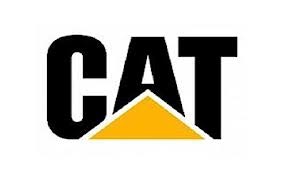Hindsight is always 20/20. It is often difficult for a company to project future results, just as it is difficult for investors to project how certain moves will affect their investment. Caterpillar Inc. (NYSE:CAT) has made some questionable decisions that may not affect investor’s as much as it seems.
Caterpillar Inc. (NYSE:CAT) actually released a fairly positive report in regards to the fourth quarter – with earnings being better than expected. Although it may not seem like much, shares increased by 2% early Monday morning (last week). Potentially the biggest news for investors looking at Caterpillar right now is the company’s net income. Investors were rightfully concerned with Caterpillar’s 50% drop in net income due to performance in China. Although management claims they performed their due diligence on the Siwei purchase, it appears the company has a multi-year intentional accounting fraud. It was a good quarter for the company, but not more than half of the acquisition is off the books.

Unfortunately, this is the risk of investing in stocks and investors need to understand the importance of diversification among companies, industries, and market caps. Often times investors view acquisitions as an opportunity, yet this is a perfect example as to why acquisitions are generally more of a risk. For nearly five years European investments have been risky, and this was shown when Caterpillar announced expectations of growth in every area except Europe. That shouldn’t go without saying that the United States has also been one of the riskiest markets to invest in for the past several years as well.
It should also be noted that Caterpillar is approximately a $70 billion company and this is only a $580 million write down. So, in the grand scheme of things, it’s a drop in the bucket for such a large company, but investors will still wonder what their definition of “due diligence” really is. Investors need to take this as an example and learn that it is long term implications that demand our attention. Caterpillar will be fine, and won’t view this as anything but a speed bump financially.
Deere & Company (NYSE:DE) is Caterpillar’s largest competitor with a market cap of $36.2 billion. Deere’s stock has increased nearly 9% in the past three months, and they actually hit an all-time high in late January. In the past decade the company has more than doubled its revenues and more than tripled its stock. The company shows a 2.6% FCF yield compared to Caterpillar’s FCF yield of less than .5%. Deere has been in business for over 175 years and currently holds approximately 50% of all North American Farm equipment. Over the past ten years Deere has invested about 4% of its revenues into research and development annually – far more than most of its competitors.
As with every business there are obstacles for Deere to overcome. The company seems to be struggling in foreign markets as this example highlights. Despite controlling approximately half of the Indian market for tractors greater than 50 horse power, these machines account for less than 10% of the country’s market, yet over 50% in North America. To help gain traction internationally, Deere has released new products in Brazil which have performed well.
The Foolish Conclusion…
Investors can learn a lot from these companies. Europe seems to be very risky at the moment, but Caterpillar should be ok despite its questionable acquisitions. Deere seems to be struggling in India, despite controlling half of the Indian market. Both stocks are performing well, but Deere seems to present a better value than Caterpillar. Whichever company figures out the foreign markets first will likely see more immediate success.
The article A Bad Bet in China originally appeared on Fool.com and is written by Tyler Wofford.
Copyright © 1995 – 2013 The Motley Fool, LLC. All rights reserved. The Motley Fool has a disclosure policy.




